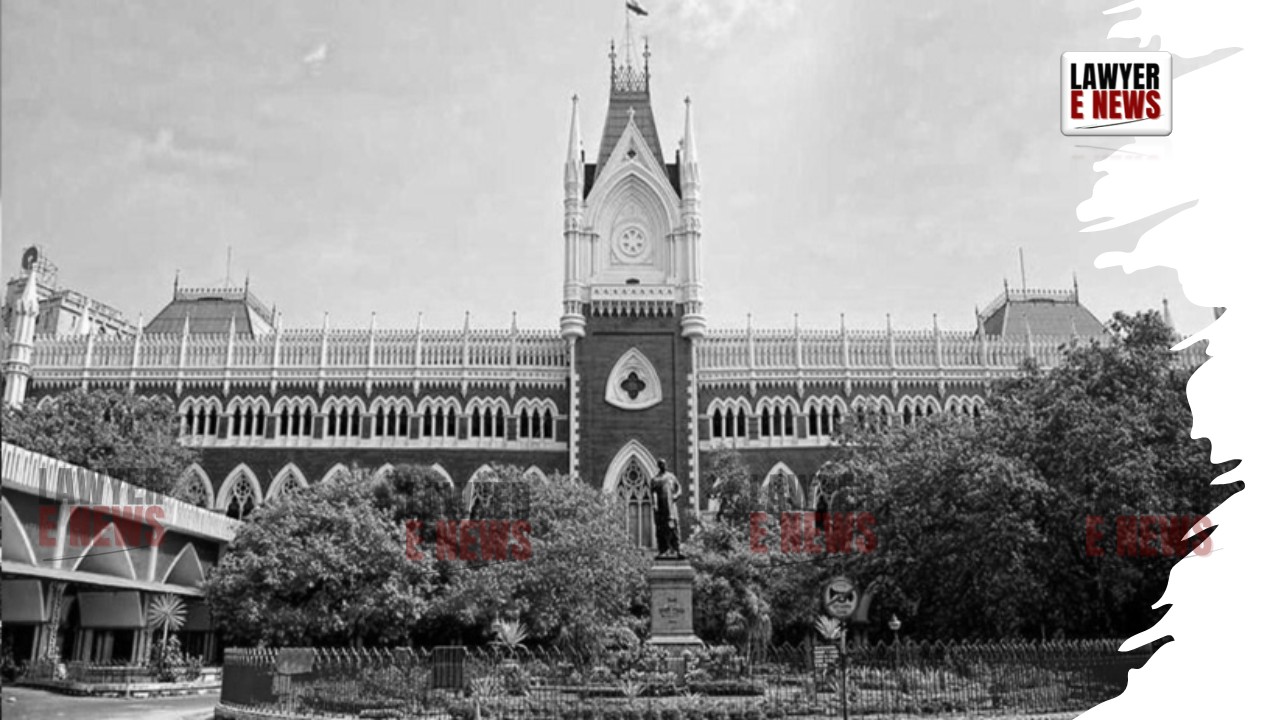-
by Admin
15 February 2026 2:36 AM



High Court modifies compensation order, mandates insurance company to pay first and recover from vehicle owner due to driver’s lack of valid license
In a significant ruling, the High Court at Calcutta directed an insurance company to pay compensation to the claimants in a fatal accident case and subsequently recover the amount from the vehicle owner. The judgment, delivered by Hon’ble Justice Shampa Dutt (Paul), emphasized the need for justice in light of the driver’s lack of a valid license and the resulting impact on the victim’s family.
On July 13, 2010, at approximately 6 p.m., Souman Mondal, a 24-year-old mason earning Rs. 130 per day, was fatally injured in an accident while riding his bicycle along Taki Road near Matitra Bagan. The accident occurred when a lorry, registered as WB-41D/5236, struck Mondal from behind due to reckless and negligent driving. The victim died instantly on the spot, leaving behind his mother and wife, who have been suffering financially and emotionally since the incident.
The court noted that the insurance company contested the claim, arguing that the owner of the vehicle violated the insurance policy terms by allowing a driver without a valid license to operate the vehicle. The insurance company’s stance was supported by the evidence presented, which confirmed the absence of a valid driver’s license at the time of the accident.
The tribunal initially awarded Rs. 4,17,500 as compensation. However, the High Court revised the calculation, considering factors such as the victim’s monthly income, future prospects, and conventional heads of damages. The revised total compensation was determined to be Rs. 8,90,400, with an additional interest rate of 6% per annum from the date of filing the claim until the payment is made.
The court’s reasoning was influenced by precedents, including the Supreme Court’s rulings in Sarla Verma (Smt) & Ors. Vs. Delhi Transport Corporation and Anr. And National Insurance Co. Ltd. Vs. Pranay Sethi & Ors. These cases provided guidelines on calculating compensation and the applicability of multipliers based on the victim’s age and income.
Justice Shampa Dutt (Paul) emphasized the need for justice, stating, “Considering the helplessness of the mother and young widow of the deceased, the interest of justice requires that the insurance company shall pay and then recover the same from the owner of the vehicle, by due process of law.”
The High Court’s decision to direct the insurance company to pay the compensation and subsequently recover it from the vehicle owner highlights the judiciary’s commitment to ensuring justice for victims’ families. This judgment underscores the legal principle that insurance companies can be ordered to compensate victims even when policy terms are violated, provided they can recover the amount from the responsible parties. This ruling is expected to influence future cases involving similar circumstances, reinforcing the protection of victims’ rights under the law.
Date of Decision: July 22, 2024
